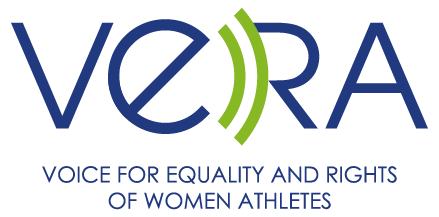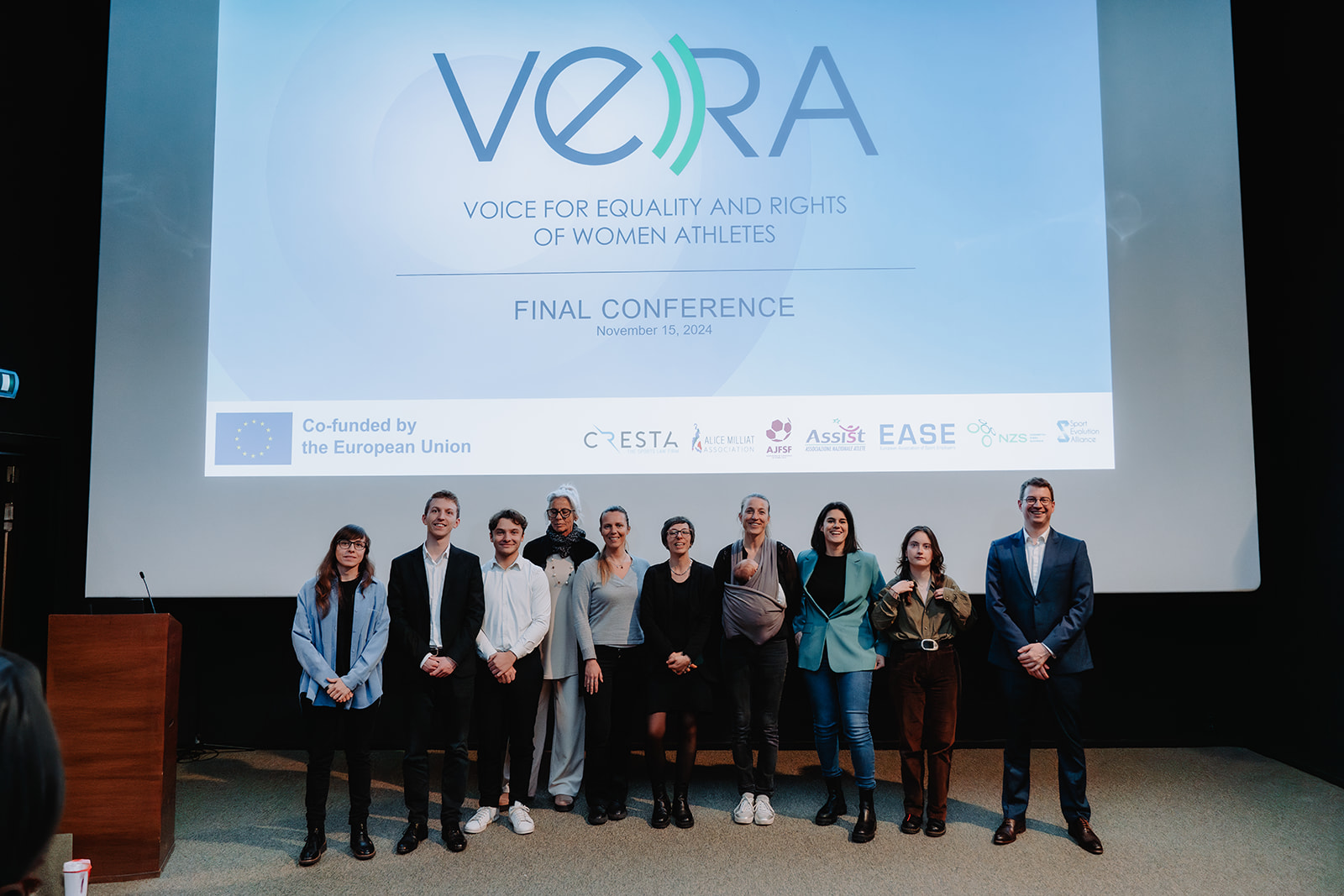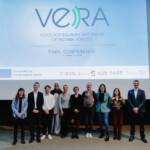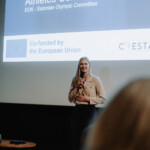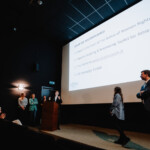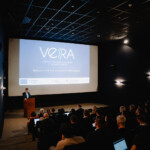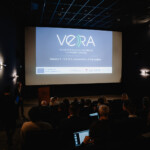V.E.R.A.: A Step Forward for Gender Equality in European Sports
Athletes, institutions, and stakeholders unite in Brussels to advocate for women’s rights in sports and promote a more inclusive future.
The V.E.R.A. project – Voice for Equality and Rights of Women Athletes – is culminated in a prestigious international conference held at the renowned Flagey cinema. The event brought together prominent sports figures, representatives of European institutions, sponsors, and key stakeholders from sports associations, underscoring the urgent need to advance gender equality in sports.
The conference began with an introduction to the V.E.R.A. platform, the central outcome of the project. It then shifted to powerful testimonials from three female athletes who shared their personal experiences on and off the field.
Antonella Bellutti, a two-time Olympic gold medalist and activist, reflected on her 30-year journey advocating for women’s rights in sports. As a founding member of Assist, she addressed persistent inequalities such as underrepresentation, pay gaps, and the lack of protective contracts for women athletes. She highlighted her 2021 candidacy for the presidency of CONI (the Italian National Olympic Committee) as an act of protest:
“My candidacy was a call for change against an outdated governance model that marginalizes women and excludes those who challenge traditional values. Although I did not win, my program initiated significant reforms, such as recognizing female athletes’ professional status. This proves that together, we can create a fairer sports system.”
Liis Kiviloo, captain of the Estonian national volleyball team and a member of the Estonian Olympic Committee’s Athletes’ Commission, shed light on global challenges:
“We cannot achieve gender equality in sports until equal pay, athlete safety and health, and proper representation are taken seriously. It is unacceptable that in 2024, women athletes earn just 10% of what their male counterparts do, that contracts fail to protect against pregnancy and injuries, and that menstruation remains a taboo in athletic preparation. Moreover, women’s sports receive only 4% of media coverage, and leadership roles remain predominantly male. It is time to ensure women have a seat at the decision-making table.”
Sofie Smismans, a Belgian amateur footballer, researcher, and teaching assistant at the Department of Movement and Sports Sciences (MOSS) at Vrije Universiteit, emphasized the overlooked importance of grassroots sports:
“Inclusion does not equate to equality. Progress exists, but it is fragmented. Barriers at the macro policy level and within local clubs make it incredibly challenging to foster change from the ground up.”
The afternoon discussions shifted to insights from governing bodies, moderated by Xavier Mansat of CRESTA Sports Law, one of the project partner. Speakers included Hugo-Petit Jean (Public Affairs Manager, COSMOS), Elizabeth Egnell (FIBA/Gamechanger Sport Development and Change Maker), Peter Van Tarel (Dutch Volleyball Federation – Nevobo), and Julie Campassens (French National Basketball Players’ Union – SNB).
Elizabeth Egnell spoke about the difficulties of cultural transformation:
“Sports were built by men for men, and it will take time for this cultural shift to occur. Being one of the few women in FIBA has been extremely challenging.”
Peter Van Tarel highlighted the need to empower young women early:
“We must start early by empowering young women and recognizing that we are not here to change them but to fix the system.”
Julie Campassens stressed the importance of political representation in achieving gender equality in sports: “It took us seven years to secure a collective agreement for the women’s basketball league. We faced financial and political hurdles and a significant lack of collaboration between sports federations and unions.”
Alice Bruni, project coordinator for Assist, stated: “Today’s event demonstrated that V.E.R.A.’s primary goal – connecting athletes, supporting organizations, and sports institutions – is essential to advancing athletes’ rights and addressing gender imbalances in Europe’s sports system. Sharing resources, spreading knowledge, and amplifying our voices is the only path forward.”
The day concluded with presentations from European institutions outlining projects and action plans to promote gender equality in sports.
A video message from Giuseppina Picierno, Vice President of the European Parliament, emphasized the importance of concrete change: “In a world where gender equality remains a challenge, it is crucial to recognize the power of women’s self-determination, especially in sports. Today, we commit to ensuring equal access to sports opportunities without barriers or discrimination. Gender disparity in sports reflects deeply rooted stereotypes and prejudices that we must dismantle. It is time to give female athletes visibility, support their careers, and celebrate their achievements. Together, we can build a future where women excel in every discipline, contributing to a more just and inclusive society. Now, more than ever, we must raise our voices and act for change.”
The event marked a pivotal step in enhancing the role of women in sports and advocating for a more inclusive and sustainable system.
